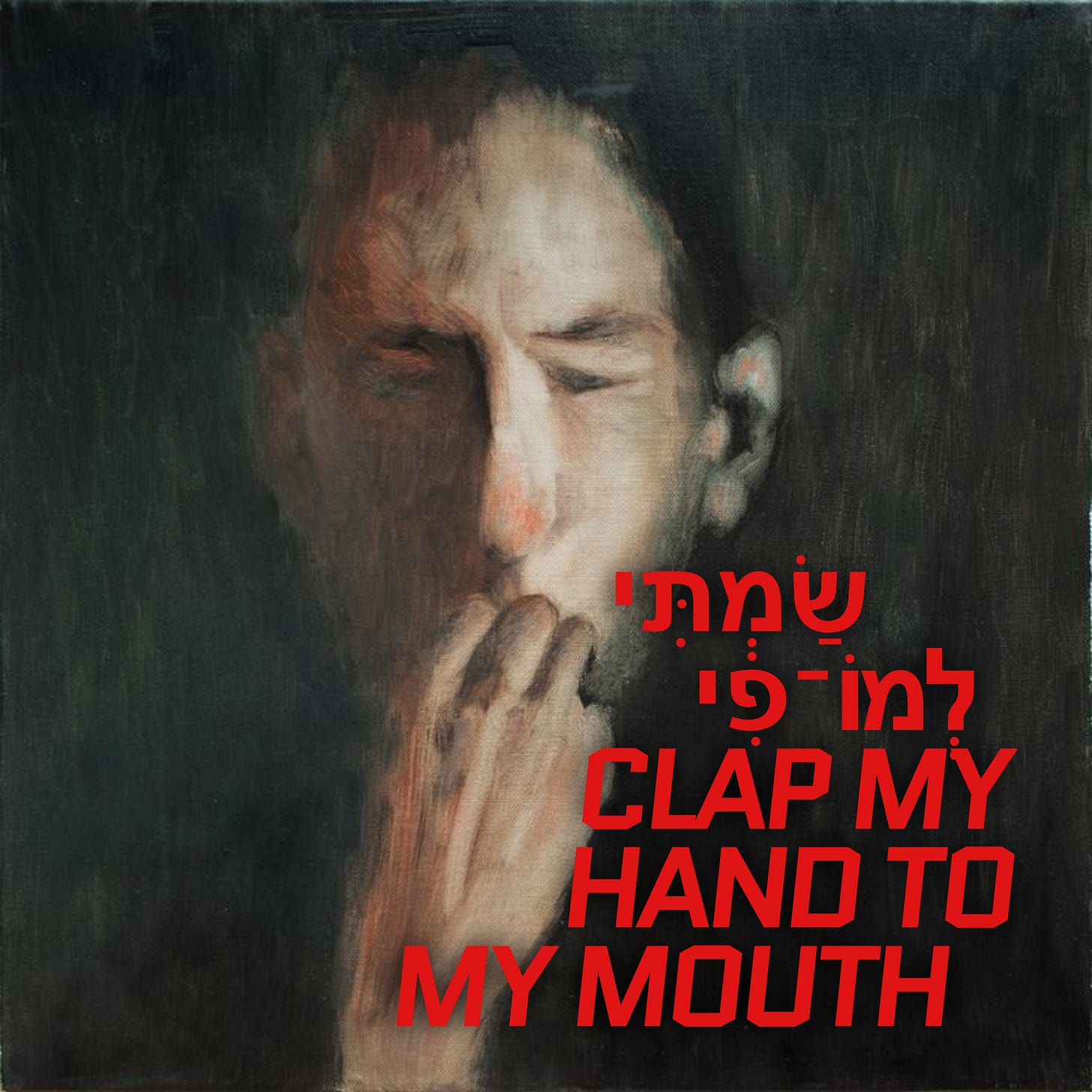"I heard upon his dry dung-heap
That man cry out who cannot sleep:
'If God is God He is not good,
If God is good He is not God.'"
J.B. Play by Archibald MacLeish
Premiering in 1958, J.B. written by American playwright and poet Archibald MacLeish is a modern-day retelling of Job - a devout American millionaire whose life is ruined. The play has won the 1959 Tony Award for Best Play and Pulitzer Prize for Drama.
MacLeish joins generations of artists and thinkers who, like Job, respond to the suffering of humanity and search for words with which to question suffering and come up with helpful answers to soothe our souls and quiet our minds.
But are there really any?
In one of the most touching moment through the Book of Job, as we near its conclusion, is the brief gesture in which Job responds to God’s stormy speech, and places his hand on his mouth, as if to say - there are no words:
וַיַּעַן אִיּוֹב אֶת־יְהֹוָה וַיֹּאמַר׃ הֵן קַלֹּתִי מָה אֲשִׁיבֶךָּ יָדִי שַׂמְתִּי לְמוֹ־פִי׃ אַחַת דִּבַּרְתִּי וְלֹא אֶעֱנֶה וּשְׁתַּיִם וְלֹא אוֹסִיף׃
Job said in reply to GOD:
See, I am of small worth; what can I answer You?
I clap my hand to my mouth.
I have spoken once, and will not reply;
Twice, and will do so no more.
Job 40:3
In The Book of Job: When Bad Things Happened to a Good Person, Kushner writes about this moment:
“The gesture of laying one’s hand on one’s mouth seems to be a way of acknowledging that one is in the presence of someone so much greater and more worthy of respect that it would be presumptuous to speak in this presence.
Is Job persuaded, or is he only intimidated? Has God answered his complaints or only called him into withdrawing them?
Chapters 38 and 39 are an eloquent tribute to God‘s power, but God‘s power was never the issue. Everyone acknowledged God‘s awesome power. It was God’s fairness and kindness that were at issue. Would God let things happen to people that that they did not deserve because God was not constrained by considerations of fairness, or people‘s unhappiness?
Throughout the book Job’s lament has been, what can I do? It’s God‘s world, and God can do what God wishes with it. But I was hoping that God would treat good people kindly.
Were the book to end at this point, with Job called into submission, we would come away from it disappointed in the author's conclusion. To have written this magnificent poem, only to have it and on a note of “ yes, the world is unfair but what can we do about it?“ Would be unsatisfying, but God is not finished. “
And nor is Job. He will have one more short response at the end of the book, once God has finished.
But not quite yet. The rest of this chapter continues the divine discussion of the wonders of the world, with particular emphasis on the creation of the two great monsters that defy all explanation: Behemoth and Leviathan. More on those later - but in the meanwhile, a curious pause to acknowledge the grand achievements of one of the greatest known commentators on the Hebrew Bible and Jewish literature. Halfway through chapter 41 of Job, at verse 20, which describes the great beast of the field, the pen of the 11th century Jewish-French Rabbi Solomon son of Isaac, better known as Rashi, runs dry.
In many printed editions and manuscripts, the following notation appears after 40:20:“Rashi composed up to here. From hereon in, it is not Rashi’s language.”
The commentary continues through the end of the book, but its origin—usually attributed either to his grandson, known as Rashbam or to R. Yosef Kara—is unclear, as are the reasons for Rashi’s final words. Most assume that he died, not able to complete the commentary on the entire Bible.
Like McLeash, Rashi, and the many other interpreters of Job whom we’ve encountered, we too pivot between our fingers on our mouth with awe and bewilderment - and the wish to write and speak words that respond to our suffering and to the real and raw reality of the world. All attitudes and responses are valid. We know that we don’t have all the answers, and that our fate and date of death is, most often, not ours to know.
Job’s humble gesture enables him, and us, to listen to the rest of the divine speech before coming to a close and drawing our own conclusions. What will be left? In J.B., Job’s wife has a name, Sarah, and a few powerful monologues that help us imagine what happens later and how we continue our journey of questions, even when the book is done:
"Blow on the coal of the heart.
The candles in churches are out.
The stars have gone out in the sky.
Blow on the coal of the heart
And we'll see by and by."
Below the Bible Belt: 929 chapters, 42 months, daily reflections.
Become a free or paid subscriber and join Rabbi Amichai’s 3+ years interactive online quest to question, queer + re-read between the lines of the entire Hebrew Bible. Enjoy daily posts, weekly videos and monthly learning sessions. 2022-2025.
Become a Paid Subscriber? Thank you for your support!
#Job #IYOV #Job40 #hebrewbible #כתובים #Ketuvim #Hebrewbible #Tanach #929 #איוב #חכמה #labshul #belowthebiblebelt929
#J.B. #ArchibaldMacLeish #Rashi #silence #wisdomofsilence #Theology #Theodicy #weareJob #isgodgood?
#peace #prayforpeace #nomorewar #hope #peaceisposible #life’sbigquestions #solidaritywithsuffering



